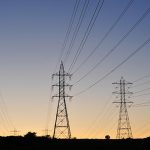The Energy Transition Will Increase Cyberattack Vulnerability

Image courtesy of DataCorp Technology LTD under Attribution-NonCommercial 2.0 Generic Deed, resized to 700 x 391 pixels.
The so-called energy transition, which involves the accelerated integration of clean energy and distributed energy resources (DERs) into the power grid, creates more entry points for hackers due to its decentralized nature. This means that utilities’ cybersecurity strategies and tactics must rapidly evolve to keep up. Unfortunately, this is easier said than done.
Implications of the Emerging Energy Transition
A close look at renewable energy trends tells the story. Worldwide, 50% more clean energy capacity was added to the grid in 2023 compared to 2022 (75% of which was solar capacity). And this growth is expected to accelerate between now and 2030.
The problem? All these additional DERs create an expanded attack surface for hackers. This is because, in addition to a greater number of entry or connection points, a certain level of automation is required for DERs. This automation can only be accomplished by transmitting data through internet of things (IoT) technologies (i.e., smart grids) which can sometimes be lacking in cybersecurity elements like authentication and encryption.
These connection points are especially prone to ransomware or malware attacks, as well as industrial control system (ICS) penetration. As evidence, cybersecurity company Armis claims that there was a 200% increase in utility cyberattacks in 2023 compared to 2022.
Thus, the energy transition means that the need for robust network and endpoint security measures will grow exponentially each and every year. This is obviously a lot of pressure for utility IT departments to manage.
Further exasperating the problem is the increasing level of geopolitical volatility across the globe. Not only are utility systems vulnerable due to an expanding attack surface, but they are also often the target of state-sponsored attacks. Simply put, we have more holes to protect, and more bad actors trying to penetrate these holes.
There is little doubt that these are unprecedented times for the utility industry. Between decentralization, clean energy integration, and system digitization, utilities will need to be on their game to effectively – and successfully – manage the energy transition.



